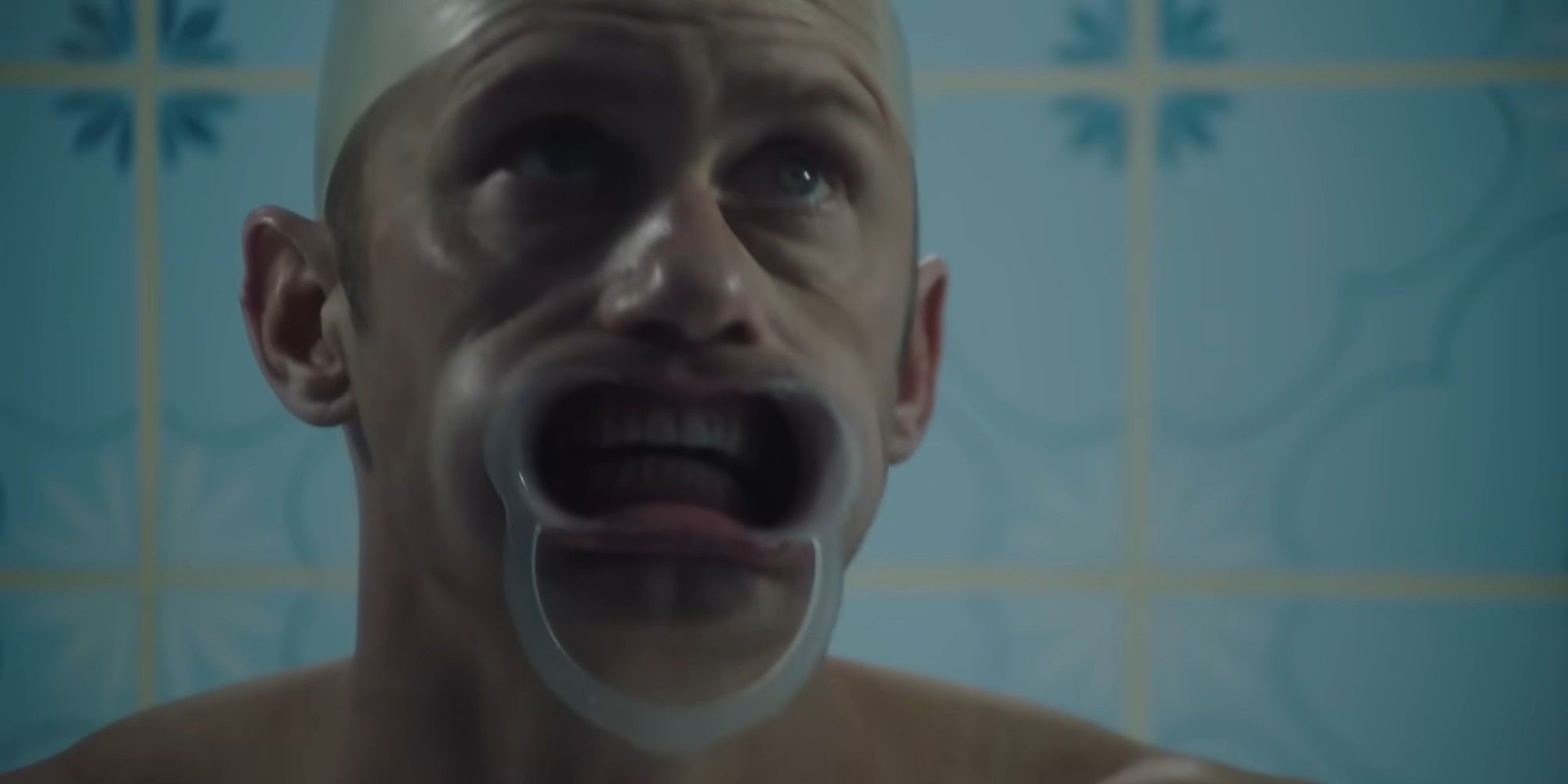This article contains spoilers for Infinity Pool.
Infinity Pool, writer and director Brandon Cronenberg's follow-up to Possessor, is nightmare art. Nightmare art is usually, but not always, horror. And not all horror is nightmare art.
Nightmare art makes the audience feel like they're inhabiting a really awful dream. The first work I experienced that captured this feeling wasn't horror or, even really horror adjacent. It was Fyodor Dostoevsky's Crime and Punishment. In the Russian novel, a young man, Raskolnikov, decides to murder an old woman. He mentally justifies the act — he is a poor former student, she is an unethical pawnbroker — but in the book, the act feels entirely senseless. It's the first work I can remember making me feel secondhand guilt, as if I had committed the violence myself.
In recent years, I've seen horror movies that evoke similar emotions. In Hereditary (spoilers ahead) Alex Wolff's Peter is in the driver's seat as his younger sister suffers an allergic reaction in the backseat. She sticks her head out the window, and is instantly decapitated by a passing telephone pole. It's a nightmarish moment, because we have to live in the unbearable seconds between Peter discovering what he's done and his parents finding out. He decides not to tell them, going home and getting straight in bed. In the morning, we hear as his mother prepares to leave, heads out to the car, and discovers her daughter's headless body.
I haven't seen Hereditary in nearly four years, but that moment is imprinted on my brain. Director Ari Aster has a knack for this kind of moment, as the opening of his 2019 follow-up Midsommar, when Florence Pugh's Dani learns that her entire family has died, is, similarly, nightmarish.
Cronenberg shoots for a similar mood in Infinity Pool. There aren't any moments quite as midnight bleak as those, but there are plenty of smaller ones that add up to something close. There's the early scene when Alexander Skarsgård's James hits a man with his car in the middle of the night and he and his group decide not to report the death to the authorities. There's the moment when James, having been caught, and having agreed to be cloned so the clone can be executed in his stead, trudges into the bizarrely earthy cloning chamber, with a plastic divider separating his lips. There's the moment when James and his wife, Em (Cleopatra Coleman,) are forced to watch as the dead man's son plunges a knife, over and over, into James' clone's stomach.
Worse still is James' realization that he enjoys this. Em asks him how he could just sit there and watch, unbothered, as his clone was killed. James doesn't have an answer, and soon he will embrace the amorality provided by deathlessness, sliding into a drunken bacchanal of murder, orgies, all-round antisocial behavior led by Mia Goth's Gabi. Goth, who is as brilliant here as she was in last year's Pearl, personifies the nightmare, luring James in and refusing to let him go.
There are many more nightmarish scenes before the movie is over. One, in which James is presented with another clone of himself who Gabi has subjugated into dog-like submission, culminates with the man fighting a feral, mute version of himself. There's the moment shortly after, in which James, having been shot, wakes up in a cabin to see the son of the man he hit with his car peeking at him from around a corner, maniacally smiling.
Infinity Pool is a little messy, and a little formless, but it effectively evokes the feeling of a nightmare. Or, better yet, the feeling that you've just woken up from a bad dream and still feel that maybe it might be real. The moments after a dream like that can be clarifying. "I'm so glad I didn't actually do that. I'm so glad that didn't actually happen." Nightmare art, by offering us a path into the same darkness while sprinkling a breadcrumb trail behind us, can do the same. We can see what really scares us, then walk out of the theater.



